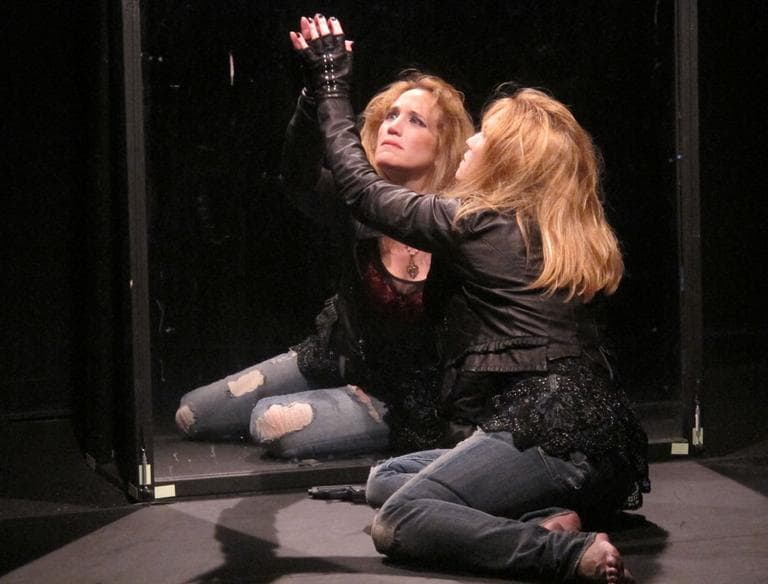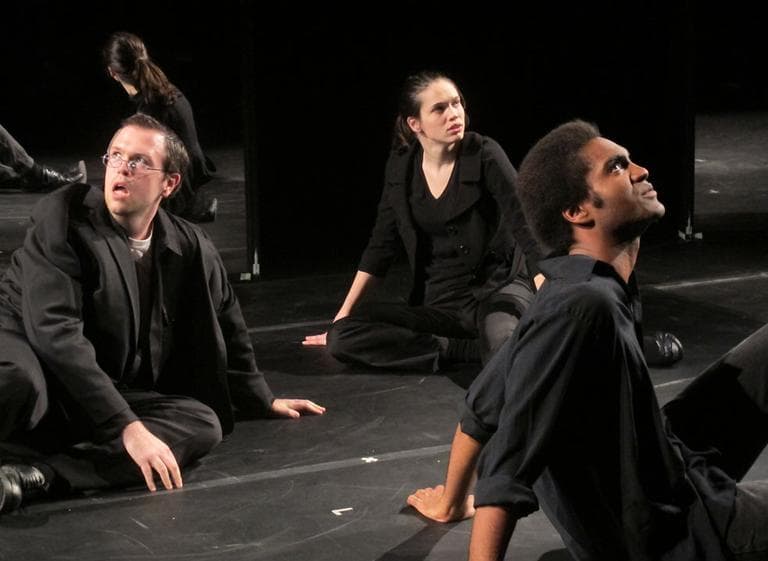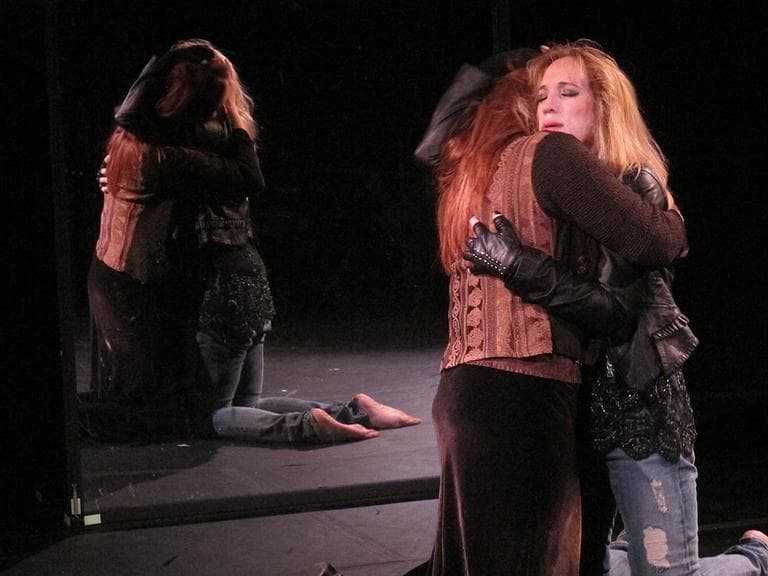Advertisement
Psych Drama Company Puts Plays On Analyst's Couch

A new theater company just launched in Boston with a novel and focused mission: to present and explore psychology-driven interpretations of Greek and Shakespearean plays.
The set for the Psych Drama Company's debut production of "Hamlet" revolves around three mirrors that loom large on the stage. During the play, the characters all catch glimpses of themselves and sometimes speak to their own reflections.
Sitting in the audience you can observe yourself in the mirrors, too. Dr. Wendy Lippe, the company's founding director, put them there as psychological devices for exploring human behaviors and interiors. She's a clinical psychologist with offices in Brookline and Cambridge, but her alter ego is an actor.

"I want the audience to be able to relate to these characters and say, 'Oh my God! Shakespeare wrote about this hundreds of years ago, I can relate to that character. I see my reflection in that mirror. This is a human dilemma that I am struggling with now, today. This is as true now as it was in Shakespeare's time,' " Lippe explained.
Actor Linda Monchick plays Gertrude, Hamlet's mother in this classic tragedy of a son avenging the murder of his father. The story is saturated with angst.
"I'm sure people will start thinking, 'What's going on here?' " Monchick mused with a laugh.
During a break in rehearsal Monchick admitted it has been challenging to act with mirrors on stage. She studied at Shakespeare & Company in Lenox and says it's also not easy to find thoughtful, unique productions of Shakespeare's work. She admires Dr. Lippe as an actor, director and psychologist — and appreciates the Psych Drama Company’s "angle."
Advertisement
"People are interested in psychology today and how the mind works," Monchick said. "And of course Shakespeare was, too, he just didn’t know it was called psychology."
As an actor, Monchick always mines her own emotional experiences to get inside her characters, and taking on the role of the adulterous, guilt-ridden Gertrude was no exception.
"You have to search your soul and see where have you been untrustworthy, where have you not been fully honest in your life, who have you hurt," Monchick said. "You bring these real experiences to your acting to bring it out."

Hamlet is one of theater's most tormented characters. His tragedy is rife with themes of family loyalty, lust, betrayal, revenge and internal conflict — making it potent material for a psychologist's lens.
Lippe's production is contemporary. Characters wear street clothes and suits. A paperback by Carl Jung makes a cameo. As director, Lippe condensed the lengthy script and altered some text. But the most dramatic change to this version of Hamlet is that the prince of Denmark is a princess. And she's also gay. Lippe plays the role on stage.
It's not the first time, though. Lippe was a female Hamlet in two previous productions, and said at first the idea flipped everything upside down in her mind. The doctor even lost sleep over trying to reconcile what the gender switch would do to Sigmund Freud's famous Oedipus complex — or, as she puts it, "the Oedipal."
"How can I be a psychologist and not deal with the Oedipal? That's the thing that's most interesting to me about Hamlet, right?” she said with a laugh.
So making a female Hamlet gay creates what Lippe calls “the negative Oedipal.”
"If we have the negative Oedipal scenario the Oedipal dynamic remains intact between Hamlet and Gertrude," Lippe explained. "Meaning that for Hamlet the primary love object remains the mother. It remains Gertrude."
And this is delicious to Lippe, who says the change raises the play's psychological ante. To push it further she also asked fellow mental health professionals to analyze the rehearsal process and then lead post-show lectures after each performance. Topics include "How Hamlet Explores Memory" and "Hamlet and the Dilemma of Choice."
Sounds academic, but Lippe assures me that's what she aims to avoid.
"We don't want our audience to just be psychologists," she said. "Our hope is to really increase psychological mindedness and increase passion for Shakespeare."
Another theme Lippe emphasizes in her production is the very human struggle between reflection and action — in the play and in our own lives.
On stage she wears ripped jeans and a red bustier. There's a gun. Lippe delivers Hamlet's tortured soliloquies facing one of the huge mirrors, with her back to the audience. There's something strange and powerful about it. At the end of the play the psychologist/actor chooses to leave one mirror exposed. It's for Horatio, the last man standing in this tragedy.
But, Lippe says, it's also for the audience.
More:
This program aired on December 2, 2011.
